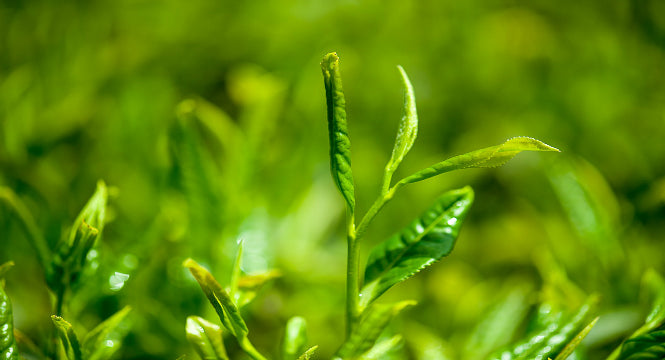Your Cart is Empty
FREE SHIPPING on US orders over $45. Save 25% With Code TAKE25 at checkout.
FREE SHIPPING on US orders over $45. Save 25% With Code TAKE25 at checkout.
Your Cart is Empty

Green tea has remained ubiquitous in China and India for hundreds of years because of its health benefits. Green tea has powerful antiviral, antimicrobial, anti-inflammatory, and immune-boosting properties.
It has been used for everything from promoting wound-healing to improving cardiovascular health, and it’s even noted that countries consuming the most green tea have lower cancer rates. This healthy drink is loaded with antioxidants, polyphenols, catechins, vitamins, and minerals, so it can nourish skin from inside and out.
Today, science is pointing more and more towards the benefits of green tea for skin health. It promotes gorgeous skin by combating aging, and might even reduce the risk of skin cancer. Research suggests it also reduces the effects of Parkinson’s disease, type 2 diabetes, weight management, Alzheimer’s, and more.
You can drink it or take dietary supplements to get green tea's benefits for skin, and you should also look for this ingredient in anti-aging beauty products.
Tea is second only to water as the most consumed beverage around the world, and green tea is one of the three main types, along with black and oolong. All three come from the plant Camellia sinensis, but the similarity ends there.
Green tea undergoes minimal processing (hence, its green color), and in this study, the amount of catechins and polyphenols, the same anti-aging substances found in tea, chocolate and blueberries, was found to be highest in green tea.
Catechins and polyphenols are powerful antioxidants. Antioxidants fight free radicals, which are rogue cells responsible for aging and disease. Green tea has a dry weight of about 30 percent polyphenols, as well as large amounts of a catechin called EGCG (Epigallocatechin Gallate). That catechin is one of the most powerful polyphenols, and one that gives green tea such strong medicinal properties.
Although there’s a tiny bit of caffeine, it’s not enough to outweigh the health benefits. Caffeine is known to increase alertness and be a mild diuretic, so it’s not surprising that it is often included in beauty products to brighten and “wake up” the complexion, and reduce puffiness.Green tea does some incredibly wonderful things for skin, such as:
Do both! Beauty comes from the inside out, but it’s also true that what you put on your face is as important as what you put in your body. Skin is not only porous, but it is also the body’s largest organ.
To really understand why you should apply green tea topically, you first need to understand the difference between penetration and absorption, because the two are often used interchangeably and that’s not correct. Penetration means going into the deeper layers of the epidermis, while absorption means actually makes it into the bloodstream.
While skin is the body’s largest organ and part of an important system called the integumentary system, it is not considered to be the most vital organ. So, a nutrient might go to a more crucial organ first, such as when sunshine goes from the skin to the liver to manufacture vitamin D.
By the time the vitamins, minerals and antioxidants complete their internal distribution, there isn’t all that much left for the skin. While no one knows for sure, some estimate that it’s as little as 60 percent. Topical applications ensure skin receives the nourishing benefits it needs.It’s been said so often that it’s almost a cliche, but it’s true: when you feel good, you look good. When you get sufficient vitamins and minerals in your diet, it shows!
Green tea is a superfood, meaning that it has a higher level of vitamins and minerals that other foods. Take special note of these vitamins in green tea that are considered to be some of the best vitamins for healthy skin:
Other superstars include:
The polyphenols provided by green tea have been noted in studies to be approximately six times higher than those found in black tea. Green tea is also high in the amino acid L-Theanine which increases the brain’s dopamine levels and lowers blood pressure, thus producing a calming effect.
In a study reported in Trends in Food Science & Technology, it was found green tea produces relaxing effects without drowsiness only 40 minutes after consumption.
How much should you drink per day for optimum health? Studies are inconclusive about that, but some suggest that you should drink two - three cups per day (or supplement your diet with 100 to 750 mg per day of standardized green tea extract).
Green tea benefits for skin have been studied among humans and animals, and so far the results have been encouraging. In fact, animal studies pointed toward skin cancer protection.
All studies, of both humans and animals, have shown demonstrable protection from sun damage. The promising results of how green tea benefits skin in scientific studies is helping consumers understand that regular consumption of green tea could be the key piece of the anti-aging puzzle.